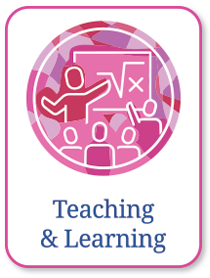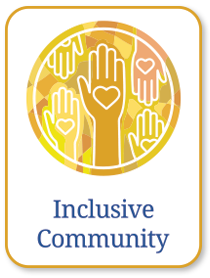


On the following slides are key initiatives that emerged from Strategic Plans and important school decisions that have guided the growth of Moorestown Friends School for the past 50 years.
SWIPE left and right
with mouse (or finger)
to navigate.
with mouse (or finger)
to navigate.



Senior Project debuts to provide off-campus internship opportunities for soon-to-be graduates. To this day, it offers in-depth, real-world experiences for seniors to explore interests, learn new skills, and grow in different directions.






The Intensive Learning program for Middle and Upper School students begins as classes are paused for a week for students to disperse around the region, to enjoy service learning and enrichment experiences in domestic and international locales.





Seth Garcia ’78 enrolls at MFS from a public school in Camden as the school’s first ABC Scholar, which grew into the Camden Scholars Program. Launched by Headmaster Alex MacColl, there are now more than 130 Camden Scholar graduates.





Chester Reagan Chair in Faith and Practice is endowed to clarify and strengthen the role of Quakerism at the school, emerging from the school’s 1978 Long-Range Plan. The position continues to lead and support a range of curricular and community initiatives aimed at strengthening our Quaker identity.




Ground is broken for Stokes Hall, which includes the Woodward Henry Diller Library, and links the Lower School and Middle/Upper School.





The Dining Hall Commons, a focal point of Campaign 2000, opens to provide a community space for events and lunch for students, faculty, and staff.





MFS receives the largest gift in school history of $3 million from Mel and Diane Baiada, which results in the construction of the Field House and a renovated Arts Center, Fitness Center, and more.





Karen Washington is appointed the school’s first Director of Multicultural Affairs (now Director of Diversity and Inclusion) to support an inclusive Moorestown Friends School community, a result of the 2004 Strategic Plan. The position is a valuable resource and advocate for students, families, faculty, and staff, assisting in the development of curriculum that honors diversity and inclusion and supports students in claiming their identities and voices.




Chinese added to the World Languages curriculum, as a result of the 2004 Strategic Plan.





Hartman Hall, Mecray Courtyard, and McShap Path open, providing a new western section of the campus after completion of the Great Classrooms for Great Kids campaign. The Campaign also enabled the renovation of science labs and classrooms in the Middle/Upper School.





Lower School Coding program begins, evolving from the 2011 Strategic Plan, which identified additions to the curriculum in the areas of 21st Century skills and Science, Technology, Engineering, and Mathematics (STEM).





Grade 7 multidisciplinary, inquiry-based Quest Program begins, linking English, Science, and History curricula, emphasizing power of interdisciplinary learning and qualitative feedback among students, teachers, and families.





An innovative Playscape opens, highlighting the instructional value of landscape architecture and the desire for children to engage with and learn from nature.






Thank you for viewing!



On the following slides are key initiatives that emerged from Strategic Plans and important school decisions that have guided the growth of Moorestown Friends School for the past 50 years.
SWIPE left and right
to navigate.
to navigate.



Senior Project debuts to provide off-campus internship opportunities for soon-to-be graduates. To this day, it offers in-depth, real-world experiences for seniors to explore interests, learn new skills, and grow in different directions.






The Intensive Learning program for Middle and Upper School students begins as classes are paused for a week for students to disperse around the region, to enjoy service learning and enrichment experiences in domestic and international locales.





Seth Garcia ’78 enrolls at MFS from a public school in Camden as the school’s first ABC Scholar, which grew into the Camden Scholars Program. Launched by Headmaster Alex MacColl, there are now more than 130 Camden Scholar graduates.





Chester Reagan Chair in Faith and Practice is endowed to clarify and strengthen the role of Quakerism at the school, emerging from the school’s 1978 Long-Range Plan. The position continues to lead and support a range of curricular and community initiatives aimed at strengthening our Quaker identity.




Ground is broken for Stokes Hall, which includes the Woodward Henry Diller Library, and links the Lower School and Middle/Upper School.





The Dining Hall Commons, a focal point of Campaign 2000, opens to provide a community space for events and lunch for students, faculty, and staff.





MFS receives the largest gift in school history of $3 million from Mel and Diane Baiada, which results in the construction of the Field House and a renovated Arts Center, Fitness Center, and more.





Karen Washington is appointed the school’s first Director of Multicultural Affairs (now Director of Diversity and Inclusion) to support an inclusive Moorestown Friends School community, a result of the 2004 Strategic Plan. The position is a valuable resource and advocate for students, families, faculty, and staff, assisting in the development of curriculum that honors diversity and inclusion and supports students in claiming their identities and voices.




Chinese added to the World Languages curriculum, as a result of the 2004 Strategic Plan.





Hartman Hall, Mecray Courtyard, and McShap Path open, providing a new western section of the campus after completion of the Great Classrooms for Great Kids campaign. The Campaign also enabled the renovation of science labs and classrooms in the Middle/Upper School.





Lower School Coding program begins, evolving from the 2011 Strategic Plan, which identified additions to the curriculum in the areas of 21st Century skills and Science, Technology, Engineering, and Mathematics (STEM).





Grade 7 multidisciplinary, inquiry-based Quest Program begins, linking English, Science, and History curricula, emphasizing power of interdisciplinary learning and qualitative feedback among students, teachers, and families.





An innovative Playscape opens, highlighting the instructional value of landscape architecture and the desire for children to engage with and learn from nature.






Thank you for viewing!




